|
The news reports statistics that demonstrate an increase in cancer and heart disease. Desperate to prevent and cure these, we spend ample resources protecting ourselves and our loved ones. We take supplements, exercise, buy organic, and spend fraught filled hours researching the safest household products. Could my water bottle be killing me? Yet even with all this, careful prevention people die of heart disease. People still get cancer. Each year over 600,000 people die of each, which amounts to more than 1.2 million deaths per year in the United States alone.
I share these statistics because I want you to know that I understand the devastating effects of diseases. I have friends who are fighting and suffering through these and know many who have lost their battles. What I would like to offer today is some perspective and a dose of hope into the devastation and brokenness of modern diseases. One of my favorite genres to read is medical mysteries and histories. My three favorite examples of these are Quakery: A Brief History of the Worst Way to Cure Everything, The Royal Art of Poison: Filthy Palaces, Fatal Cosmetics, Deadly Medicine, and Murder Most Foul, and Get Well Soon: History's Worst Plagues and the Heroes Who Fought Them. My family is often horrified by these books, but I just can't get enough. Anyone who reminisces for times gone by and wishes they could live in the olden days should be slapped and forced to read any one of these. I say that jokingly, but our minds are skewed by watching historical dramas on film and wondering at the beauty and ornateness of palaces and castles. Sickness reigned supreme and in our days of nervousness over how many and which types of supplements should we be taking, we forget just how bad life was. Let me explain.
I look forward to a future free from death and misery, but we aren't there yet. Because of sin, we will all die of something. The hope I offer is that by God's grace in preserving my life and your life through medical science and investigation He has given me more time than those who lived before. We are now living longer and enjoying greater health than that of any other time in history. Give thanks for the health (no matter how little) you have and praise God for his gift of salvation!
0 Comments
Hebrews 12: 1-2 "Therefore, since we are surrounded by so great a cloud of witnesses, let us also lay aside every weight, and sin which clings so closely, and let us run with endurance the race that is set before us, looking to Jesus, the founder and perfecter of our faith, who for the joy that was set before him endured the cross, despising the shame, and is seated at the right hand of the throne of God." To set up these verses you really need to read Hebrews chapter 11. The chapter is full of people who had faith and were used by God. Chapter 11 ends with the statement, "And all these, though commended through their faith, did not receive what was promised . . ." Chapter 12 starts with beautiful imagery of those previously listed acting as witness to a great race.
Tomorrow I am running a half-marathon. I wanted to run the whole, but didn't have time to train for it. I'm not very fast, but I love running long distances. I love the solitude of the long run, pushing through the discomfort, and enduring to the end. For me it is a deeply spiritual experience. That is not to say I transcend into some other state or "feel" really emotional, rather my experience helps me comprehend and meditate on spiritual things particularly Hebrews 12:1-2. The great cloud of witness: Tomorrow there will be crowds of family and friends cheering. People will be cheering harder for their specific loved ones, but I've stood as a spectator. The crowd becomes one as they are cheering for all those who are striving to finish. Those who have walked the Christian faith have inspired us to go on. We can look to men and women of faith and know that they are worshiping God and cheering us to do the same. Laying aside every weight: Usually when I go out for a long run I bring along a water bottle and/or some Gatorade, but bringing these to the race would be unnecessary. I trust the race planners will make sure there is hydration stations along the route. Some items might be downright wrong to bring, but most would just be unnecessary. In my life, the sins that plague me the most aren't the really shockingly bad ones. They are sins of worrying about inconsequential things that keep me from living a life that is full of God. They are worrying about what others think of me more than considering that God loves me. Run with endurance the race that is set before us: A marathon (or a half-marathon) is not a sprint. If you run too fast in the beginning you can cramp up and suffer later on. You train at a sustainable pace then settle in for the long run. Walking the Christian life isn't about doing amazing things every Sunday then living apart from God for the rest of the week. It's not about doing great things occasionally then ignoring God the rest of the time. Walking a faithful Christian walk takes endurance. Looking to Jesus, the founder and perfecter of our faith, who for the joy that was set before him endured the cross, despising the shame, and is seated at the right hand of the throne of God: Tomorrow, I'm going to trust the race organizers. I trust they have measured correctly. I trust they have set up the hydration stations. I trust I will be safe. They know the course because they set it up. They originated it. They've traveled it. When I'm discouraged by the early morning, the sore legs, and the cold, I think of the finish of the race. Detroit gives out great medals. I get the bragging rights to say that I've ran the race. I finish the race not for the fun during the race (although it is fun), I finish the race for the joy at the end. Jesus isn't asking us to run a race he's unfamiliar with. He planned the path he's asked me to travel. He designed it specifically with me in mind. He didn't have an easy time when he was here. He left the glory of heaven to come to earth to die for our sin. He walked many a lonely road, but he didn't do it for suffering's sake. He did it because he knew the joy that was to be set before him. He knew that his death would reconcile man and God and that he would be back in heaven with his Father. Tomorrow's event will end for me after I've run 13.1 miles. The other race I'm part of will end when God calls me home. My goal is to run both with endurance. I recently had the amazing opportunity to present at a teacher's convention. This particular convention included Christian educators from all over the Great Lakes Region. I presented about World War I and about teaching history with a Biblical worldview. I think I'm supposed to be all calm and professional about it, but can I just say -- THAT WAS SO MUCH FUN!!! I got to talk to teachers and talk about nerdy history stuff and it was just the best! Okay, back to sounding like a calm adult. I would relish any other opportunities to speak to groups in the future should the opportunity arise. Although my presentations weren't specifically about reading books, I had stacks of books to recommend at each. I see immense benefits in students reading across a broad spectrum of genres and topics. Reading allows students to take their education into their own hands and study what they are interested in. Because we all differ so much in personality, it is always difficult if not impossible to find books that please everyone. When teaching 6th-grade reading, I used a method that I learned from Donalyn Miller in The Book Whisper. I assigned a total of 36 books for my students to read throughout the school year. I know this sounds daunting, but here's how it worked.
I used this method for three years and saw immense success. Pitfalls could arise so it's important for each teacher using this program to consider the definition of success that best matches their goals. My goal was to encourage literacy and get students reading. I had some students that only managed to read 5 or 10 books. I saw this as a win. As long as they noted everything and turned it in they at least got a C grade. (By the way, a C is and is acceptable. I'll write about that another day.) I also allowed and even encouraged students to read graphic novels. Nathan Hale writes fantastic graphic novels in the historical fiction genre. Some graphic novels, such as Snow White, have little to no words but tell a compelling story. I would talk with students and make sure they understood the symbolism and picked up on the literary devices the author employed in the illustrations. Learning to "read" pictures is a very powerful tool especially in this day when images are king. For my class, success equaled books consumed. And did my students consume books! During the 2015-16 school year, I had 52 students and we read over 1,400 books. Below, you can see a picture of our book chain. So that's how I taught reading. I got to read and learn with the students and we all grew. Maybe it isn't for every classroom, but I can't imagine my life without this experience. What was your classroom reading experience like as a middle school and high school student? Comment below and let me know. Today's wonder word isn't unusual or rarely used like spanghew or defenestration, but it is one one of my favorite words so I'll get right to it. Today's Words: Curious, Curiosity, Curiously Curious: Three syllables. Pronounced [kyoor-ee-uhs] Adjective. Defined by the OAD as eager to know or learn something Curiosity: Five syllables. Pronounced [kyoo r-ee-os-i-tee] Noun. Defined by the OAD as strong desire to know or learn something Curiously: Four syllables. Pronounced [kyoo-ee-uhs-lee] Adverb. The adverb form of curious. Curiosity is often associated with the young because children tend to ask a lot of questions. Sometimes parents bemoan this as a frustration because the timing of the questions can be frustrating. In our house, bedtime always seems to produce deep theological questions. Instead of looking at children's questions as frustrating, we should recognize that curiosity is a powerful thing. Albert Einstein said, "I have no special talent. I am only passionately curious." I would argue that he was particularly talented, but I think the point he was trying to make is the curiosity drives learning and growth and he had a lot of curiosity. Why is curiosity so important? Well, without it we accept our life as it is. That is not to say that curiosity breeds discontentment. Curiosity asks questions and seeks answers about how the world works rather than lamenting over one's current state. Alice's curiosity is what leads her though Wonderland. Had she been scared or disinterested she might have curled up in a ball of terror instead of continuing to explore. Curiosity encourages contentment because it occupies the mind with thinking and removes boredom. I've noticed that people (kids and adults) who are easily bored are often not very curious individuals. Curiosity gives the mind a place to go when the body is stuck in one place. Why is grass green? Why are there so many people working in this restaurant's kitchen? Who buys all the Spam at the grocery store? Why do birds move like that? Curiosity breeds wonder and wonder is a fantastic feeling. After reading Quackery, a book about the history of medicine, not only was I more curious about the history of medicine I was also left with a sense of wonder that any of us have survived to the year 2019. After reading Consider the Fork, I was left curious about the history of other household objects and in wonder of the simple innovations that make my life what it is. In How Children Succeed, Paul Tough argues that curiosity is a powerful motivator and an indicator of future success. High marks on report cards indicate an ability to follow directions (which is good) but a strong sense of curiosity is an indicator of future success (even better). Experts in listening and conversation will state all kinds of ways to engage in stimulating conversation. They will tell you to mirror your counterpart's body language and nod to let them know you're listening and a bunch more things to remember, but really, if you're curious about what you're hearing and you are paying attention you will listen well without all the steps. (Here's a great TED Talk to that effect.) So my challenge for you on this day is to live curiously. Live eager to know or learn something. In a conversation with someone who has strong opinions you disagree with? Find out WHY they hold those strong opinions. At a restaurant where your food taking too long to come up? Look at the restaurant design and try to understand the designers choices. On a long car ride? Ask questions about the lives of those you are with. A curious life is always growing and always moving forward. One last book recommendation for today is A Curious Mind by Brian Grazer and Charles Fishman. Grazer makes the case that his successes in life have a great deal to do with his curiosity and passion to learn new things from interesting people.
|
"A jack of all trades is a master of none, but oftentimes better than a master of one." Archives
May 2020
Categories
All
|
AdventuresGet in Touch |
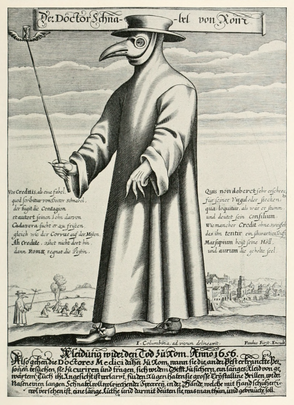
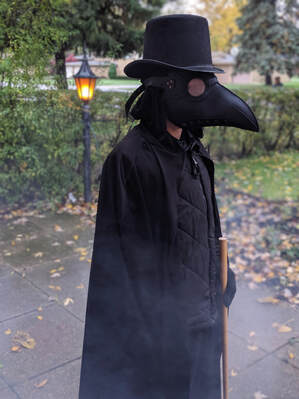
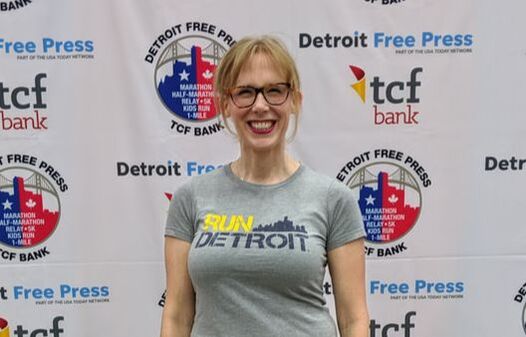
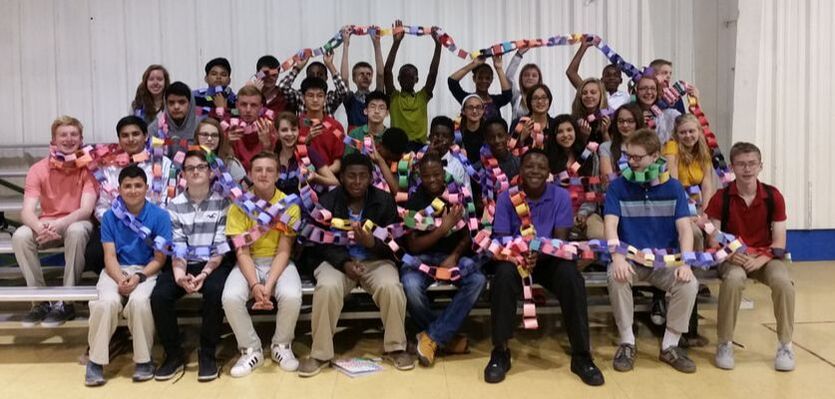
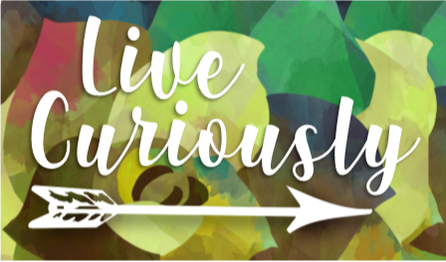
 RSS Feed
RSS Feed